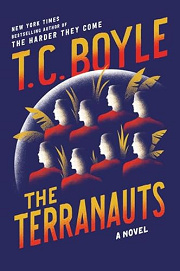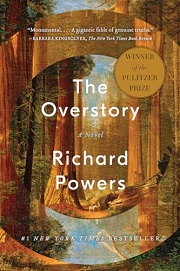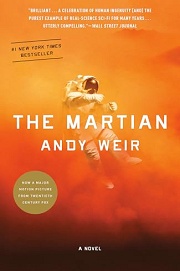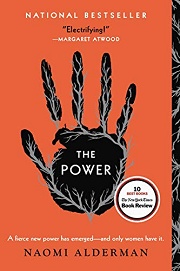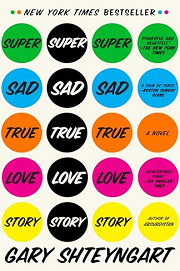Share your thoughts in a quick Shelf Talk!
The Terranauts by T. C. Boyle
Inside a sealed desert biosphere, a crew chases science, fame, and survival as personal ambitions threaten the experiment’s fragile balance. Razor-sharp and biting, The Terranauts turns a glass-walled utopia into a pressure cooker you can’t look away from.
Have you read this book? Share what you liked (or didn’t), and we’ll use your answers to recommend your next favorite read!
Love The Terranauts but not sure what to read next?
These picks are popular with readers who enjoyed this book. Complete a quick Shelf Talk to get recommendations made just for you! Warning: possible spoilers for The Terranauts below.
In The Terranauts, did you enjoy ...
... the eco-experiment’s scrutiny of humanity’s relationship to closed ecosystems and the natural world?
The Overstory by Richard Powers
If what gripped you in The Terranauts was watching E2’s biomes strain under rationing, CO₂ spikes, and the team’s constant trade-offs between spectacle and stewardship, The Overstory takes that concern beyond glass walls. You’ll follow characters like Patricia Westerford, whose research reframes forests as interdependent systems, and activists whose lives converge around protecting living ecosystems with the same intensity the Terranauts tried to balance theirs. The moral knots—public pressure, scientific credibility, and the cost of action—echo the mission vs. media compromises you saw in Dawn, Ramsay, and Linda’s story.
... the claustrophobic, closed-environment survival under constant resource pressure?
The Martian by Andy Weir
If the sealed E2 grind—counting calories, eking out oxygen, patching systems with ingenuity—was your jam in The Terranauts, you’ll love The Martian. Mark Watney’s potato-farming, oxygen-hacking, and duct-tape fixes on Mars hit that same nerve as the Terranauts’ scrimping harvests and emergency workarounds when the habitat’s balance faltered. Where the E2 crew juggled PR and command interference, Watney wrestles with time and physics; both deliver that tense, problem-solving rush inside a fragile bubble where one mistake can doom the whole mission.
... the rotating first-person perspectives exposing rival ambitions inside E2?
The Power by Naomi Alderman
If you liked how The Terranauts lets Dawn, Ramsay, and Linda trade the mic to reveal clashing motives, betrayals, and private justifications, The Power uses multiple viewpoints to show a world upended by a new female ability. As with the E2 diaries and confessional tones, you’ll see ambition, self-mythology, and shifting alliances from the inside. The personal angles accumulate into a bigger social picture—much like E2’s intimate squabbles reflecting grand questions about control, responsibility, and who gets to define success.
... ambitious, flawed participants whose choices blur ethics under pressure?
Gold Fame Citrus by Claire Vaye Watkins
If the messy, often self-serving decisions in The Terranauts—the affair-driven rifts, secrecy around a pregnancy, and willingness to game the mission’s rules—kept you riveted, Gold Fame Citrus offers equally thorny moral terrain. In a drought-ravaged West, Luz and Ray make desperate, compromising choices to survive, much like the E2 crew bending ideals to keep their project (and public image) viable. You’ll appreciate how Watkins refuses easy heroes, letting necessity, pride, and love curdle into risky, ethically gray action.
... the sharp satire of media spectacle, hype, and techno-utopian dreams?
Super Sad True Love Story by Gary Shteyngart
If Boyle’s skewering of E2’s branding—the staged broadcasts, donor-pleasing stunts, and a charismatic outside leadership selling a grand vision—made you grin and wince, Super Sad True Love Story hits that same satiric sweet spot. Through Lenny and Eunice’s misfit romance in a near-future America obsessed with ratings and performative transparency, Shteyngart lampoons the same hype cycles and image management that plagued the Terranauts. It’s biting, funny, and painfully recognizable in the way ideals get packaged—and corrupted—for public consumption.
Unlock your personalized book recommendations! Just take a quick Shelf Talk for The Terranauts by T. C. Boyle. It’s only a few questions and takes less than a minute.
